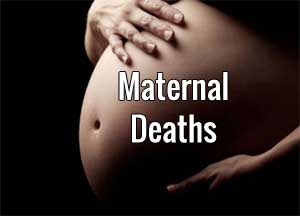- Home
- Medical news & Guidelines
- Anesthesiology
- Cardiology and CTVS
- Critical Care
- Dentistry
- Dermatology
- Diabetes and Endocrinology
- ENT
- Gastroenterology
- Medicine
- Nephrology
- Neurology
- Obstretics-Gynaecology
- Oncology
- Ophthalmology
- Orthopaedics
- Pediatrics-Neonatology
- Psychiatry
- Pulmonology
- Radiology
- Surgery
- Urology
- Laboratory Medicine
- Diet
- Nursing
- Paramedical
- Physiotherapy
- Health news
- Fact Check
- Bone Health Fact Check
- Brain Health Fact Check
- Cancer Related Fact Check
- Child Care Fact Check
- Dental and oral health fact check
- Diabetes and metabolic health fact check
- Diet and Nutrition Fact Check
- Eye and ENT Care Fact Check
- Fitness fact check
- Gut health fact check
- Heart health fact check
- Kidney health fact check
- Medical education fact check
- Men's health fact check
- Respiratory fact check
- Skin and hair care fact check
- Vaccine and Immunization fact check
- Women's health fact check
- AYUSH
- State News
- Andaman and Nicobar Islands
- Andhra Pradesh
- Arunachal Pradesh
- Assam
- Bihar
- Chandigarh
- Chattisgarh
- Dadra and Nagar Haveli
- Daman and Diu
- Delhi
- Goa
- Gujarat
- Haryana
- Himachal Pradesh
- Jammu & Kashmir
- Jharkhand
- Karnataka
- Kerala
- Ladakh
- Lakshadweep
- Madhya Pradesh
- Maharashtra
- Manipur
- Meghalaya
- Mizoram
- Nagaland
- Odisha
- Puducherry
- Punjab
- Rajasthan
- Sikkim
- Tamil Nadu
- Telangana
- Tripura
- Uttar Pradesh
- Uttrakhand
- West Bengal
- Medical Education
- Industry
India accounts 15 percent of the total global maternal deaths: MOS Health

As per the UN Inter–Agency estimates in the publication “Trends in Maternal Mortality: 1990 to 2015", It is estimated that India accounts for 15 percent of the total global maternal deaths.
As per SRS 2001-03 major reasons of maternal deaths are Haemorrhage (38 precent) Sepsis (11 percent), Abortion (8 percent), Hypertensive disorders (5 percent), Obstructed labor (5 percent) and other causes (34 percent) - including anaemia and various other causes.
To address the issue of poor health, anaemia and deficient medical facilities, Government of India has taken several steps:
- Operationalization of Sub-Centers, Primary Health Centers, Community Health Centers and District Hospitals for providing 24x7 basic and comprehensive obstetric care.
- To overcome the shortage of maternity beds so that quality care can be given to pregnant women and neonates, Mother and Child Health wings (MCH wings) have been sanctioned at high case load delivery points, based on the proposal received from the States and UTs in their annual Project Implementation Plans (PIPs).
- Operationalization of Safe Abortion Services and Reproductive Tract Infections and Sexually Transmitted Infections (RTI/STI) at health facilities with a focus on “Delivery Points”.
- Capacity building of health care providers in basic and comprehensive obstetric care with a strategic initiative “Dakshata” to enable service providers in providing high quality services during childbirth at the institutions.
- Augmenting the availability of skilled manpower at health facilities for providing basic comprehensive & emergency obstetric care, different skill-based training such as Skilled Birth Attendance for Auxiliary Nurse Midwives/Staff Nurses/Lady Health Visitors; training of MBBS Doctors in Life Saving Anaesthetic Skills, Emergency Obstetric Care including Caesarean Section.
- Universal screening of pregnant women for anaemia is a part of ante-natal care and all pregnant women are to be provided iron and folic acid tablets during their ante-natal and post natal visits.After the first trimester of pregnancy, every pregnant woman during ANC is to be given iron and folic acid (IFA) tablets for six months, and six months post-partum. Pregnant women, who are found to be clinically anaemic, are to be given double the dose of IFA.
The Minister of State (Health and Family Welfare), Sh Faggan Singh Kulaste stated this in a written reply in the Rajya Sabha.
Next Story


